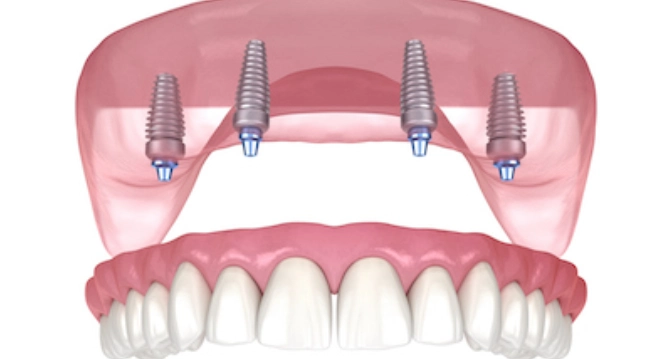LEARN ABOUT OUR SAFETY COMMITMENT
Menu
- New Patients:
- 727-219-1369
- Current patients:
- 727-494-7179
Menu

Denture stabilization offers numerous advantages to enhance your quality of life, such as:
Denture stabilization comes in two primary types: ball-retained and bar-retained dentures.
If you’re interested in learning more about the denture stabilization process and your options in New Port Richey, FL, book your consultation today at Precision Dental. New patients can call us at 727-219-1369, while current patients can contact us at 727-494-7179.
We look forward to helping you achieve a confident, beautiful smile!
Fixed, not removable
Costs an average of around $2,500+ depending on the type of material chosen and the number of teeth required- another factor is the type of bridge
Requires 2 or more appointments over the course of a few weeks
Usually requires replacement after about 10 to 15 years, may last about 10 with proper care and maintenance
Fixed, not removable
Costs $5,000+ for a single implant and up to $60,000+ for full-mouth restoration. Hybrid options cost an average of $12,000 per arch
Requires multiple appointments over several months to a year or more
Implant screw should last a lifetime but the restoration may need to be replaced after about 20 years
Friday (Good Friday)
9 AM–2 PM Hours might differ